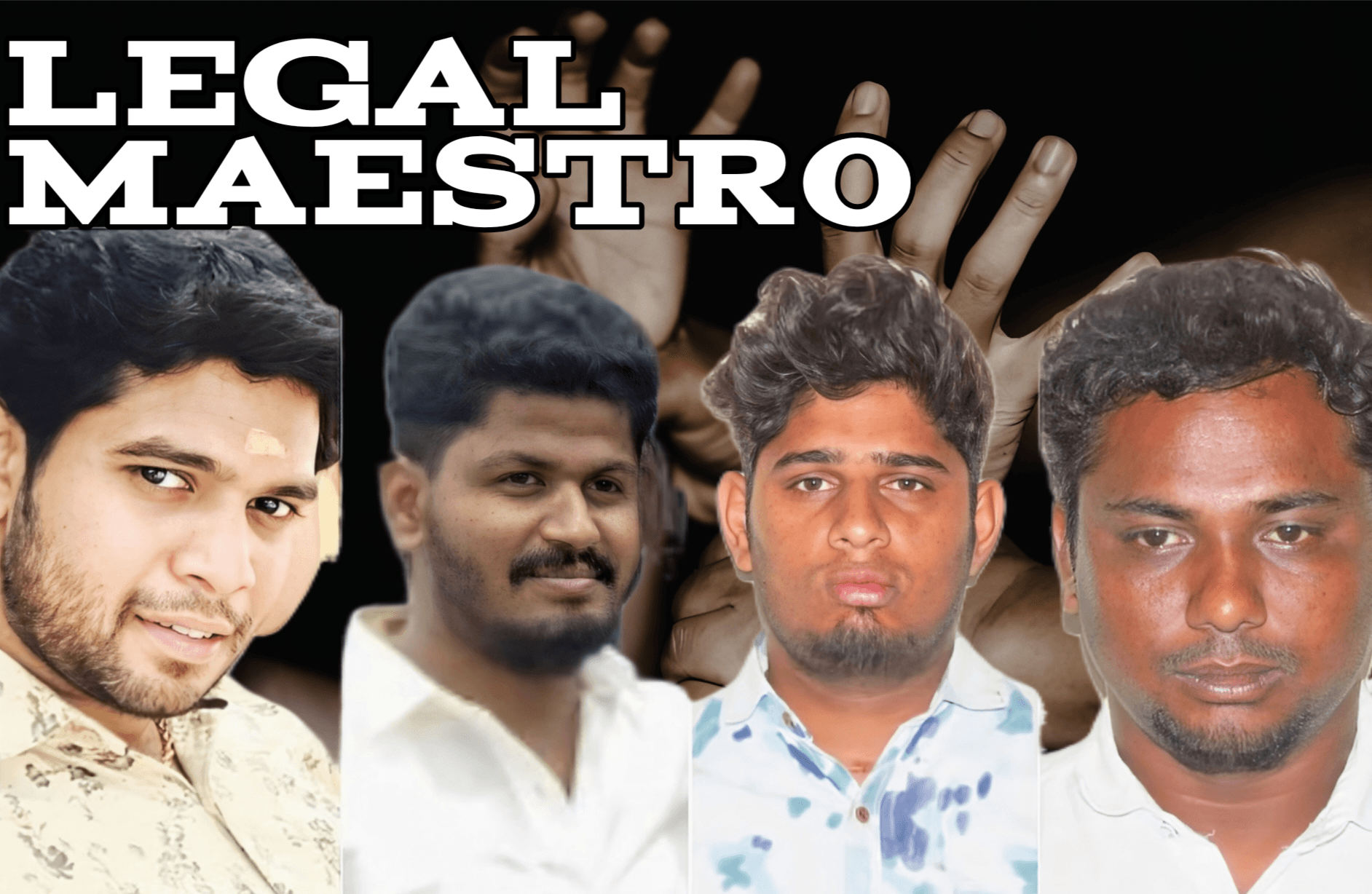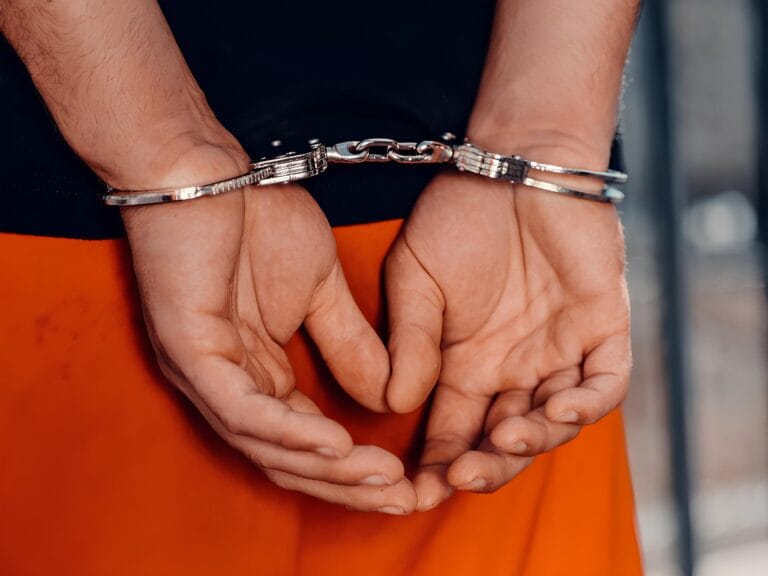
Between the years 2016 and 2018, the tranquil town of Pollachi, which is located in the district of Coimbatore, became the location of a crime against women that was quite unsettling.
A group of young guys approached women on social media, was successful in gaining their trust, and then made arrangements to meet them in remote locations. At that location, the victims were subjected to gang-rape, as well as undressed, and the incident was covertly recorded using concealed cameras.
After some time had passed, the perpetrators threatened to make the tapes public if the women did not comply with more requests for sexual favors or financial compensation. As soon as a college student who was 19 years old bravely made a complaint in February 2019, the police initially displayed a lack of interest in the matter.
For any queries or to publish an article or post or advertisement on our platform, do call at +91 6377460764 or email us at contact@legalmaestros.com.
A more thorough investigation was finally conducted as a result of public indignation and media attention, which ultimately led to the Central Bureau of Investigation (CBI) being given responsibility for the investigation.
The narrative of exploitation, treachery, and delayed justice provoked a discourse on a national scale about the safety of women, the accountability of law enforcement, and the effectiveness of India’s criminal laws.
Details on the situation
The victims of the gang comprised numerous professionals from all around Tamil Nadu, including college students, professors, doctors, and other professionals.
There were at least eighteen women who had come forward by the time the matter was brought to light, while reports from the media claimed that many more women had suffered in silence.
A number of assaults were captured on camera by the perpetrators, who then used these recordings to blackmail the survivors into silence or to subject them to additional abuse.
Procedures were not followed properly during the first police response, which resulted in the identify of a survivor being made public by the officer in charge, which discouraged additional people from coming forward.
Following the initial handling of the case by the local section of the Tamil Nadu police, the case was transferred to the State Crime Branch, and then it was finally committed to the Central Bureau of Investigation, which identified new victims and hunted down other suspects.
A total of nine individuals were taken into custody by the Central Bureau of Investigation (CBI) in January 2021. The proceedings of the trial began in February 2023 in front of Judge R. Nandhini Devi in the Coimbatore District Mahila Court. The proceedings were conducted in camera to protect the witnesses and survivors from the scrutiny of the general public.
legal provisions that are applicable in accordance with the Bharatiya Nyaya Sanhita
A number of laws of the Indian Penal Code were superseded by the Bharatiya Nyaya Sanhita, 2023 (BNS), which came into effect in April 2024 and has particular chapters on offenses committed against women and children.
The culprits of the Pollachi incident were charged under a number of important BNS sections. Rape is defined as sexual intercourse that occurs without the agreement of the victim, and it is criminal under Section 64.
The penalty for rape are increased under Section 65 in cases where the victim is a minor or where the gang who committed the rape is involved.
In the event that the assault results in serious injury or death, Section 66 makes provisions for more severe punishments. The use of criminal force or violence to perpetrate a sexual offense is addressed in Section 76, which covers cases in which victims are compelled but not totally penetrated.
Voyeurism, which includes recording private acts without the consent of the subject, is made illegal under Section 77. An individual who is employed by the government who discloses the identify of a survivor is in violation of Section 73, which is designed to safeguard the privacy of victims.
Additional charges were brought against the conspirators under Section 45 for criminal conspiracy and Section 308 for extortion when they threatened survivors for money or sexual acts. Both of these charges were brought against them. These rules, when taken as a whole, are a reflection of the comprehensive approach that is taken in Chapter 5 of the BNS to penalize and discourage offenses that harm the dignity and bodily autonomy of women.
Investigations and Law Enforcement Procedures
A lack of sensitivity and an inability to obtain early evidence were two of the criticisms levelled against the first inquiry conducted by the local police.
The first victim came forward in February of 2019, however the registration of a First Information Report (FIR) was delayed by the investigating officers, and they permitted important data to be disclosed to the public, which eventually drove survivors away. In the middle of 2019, the state government was forced to transfer the case to the Central Bureau of Investigation (CBI) after being subjected to persistent pressure from the media and protestors.
The investigation gathered speed while it was being overseen by the Central Bureau of Investigation (CBI). Technicians were able to track down mobile and CCTV records, forensic teams were able to analyze digital evidence, and investigators conducted victim-friendly interviews.
Particular recognition is due to the personnel of the Central Bureau of Investigation (CBI) who meticulously identified additional victims by cross-referencing the online chats of the perpetrators. As a result of the painstaking approach, a comprehensive chargesheet was produced.
This chargesheet included information from forty-eight witnesses and alleged offenses that were committed under several sections of the BNS. Survivors were provided with support services and medical care by the state’s women’s commission, which also played an active part in ensuring that their court appearances went off without a hitch.
The Judicial Procedure and the Decision
The matter was initially brought before the special Mahila Court in Coimbatore in February of 2023, and Judge R. Nandhini Devi presided over the proceedings. The proceedings were conducted in a private setting, with the victims’ identities being kept strictly confidential. Additionally, comfortable waiting places were made available for the survivors and family members.
Electronic evidence, reports from experts, and testimony from witnesses were all evaluated by the court over the course of two years. Despite concerns raised by the defense over the admissibility of films, the judge supported their relevance under Sections 76 and 77. The judge pointed out that the evidence was essential in demonstrating non-consent and the blackmail plan under consideration.
All nine of the individuals who were accused of committing rape, gang rape, sexual assault, voyeurism, criminal conspiracy, and extortion were found guilty by the court on May 13, 2025. For the rape charges that were brought against them under Sections 63 to 65, each of the convicted individuals received life imprisonment until death, in addition to extra sentences for connected offenses.
Additionally, the court issued an order that the state government should pay a total of eighty-five lakh rupees as compensation to the eight women who testified. This was done in recognition of the long-lasting pain and social disgrace that these women had experienced.
Conflicts in the Political Arena
From the very beginning, the Pollachi case has become a contentious issue in the political landscape of Tamil Nadu. The opposition parties in 2019 pointed the finger of blame at the government AIADMK for the inaction of the police, citing the alleged role of a local party functionary who was among the accused.
After the DMK accused the AIADMK of politicizing the matter in advance of polls, the AIADMK responded by stating that arrests had been made during its previous administration.
In May of 2025, after the conviction, Chief Minister M.K. Stalin of the DMK praised the verdict as a vindication of his administration’s commitment to the safety of women. On the other hand, his predecessor, Edappadi K. Palaniswami of the AIADMK, claimed credit for registering the FIR and argued that the case itself was transferred to the Central Bureau of Investigation (CBI) during his administration.
Both parties made use of the verdict to bring attention to the security record of women under their control, which resulted in heated debates within the state assembly chamber. Civil society advocates, on the other hand, advocated that justice should not be politicized and asked for more extensive reforms in police training, survivor care structures, and social attitudes in order to prevent such crimes.
Impact and Concluding Remarks
The sexual assault case involving Pollachi serves as a sharp reminder of the difficulties that women confront, especially in areas that appear to be safe.
It exemplifies the destructive potential of technology when it is used inappropriately and the stifling impact that social shame has on the communication of criminal activity. In a legal sense, the case was a test of the robustness of the provisions of the Bharatiya Nyaya Sanhita on sexual offenses and victim protection.
It also established a precedent for the interpretation of new sections on voyeurism, conspiracy, and privacy breaches. The significant role that was performed by specialized investigative agencies and devoted judiciary highlighted the necessity of gender-sensitive procedures and courtrooms that are centered on survivors.
From a political standpoint, the case demonstrated how the protection of women may be used as a battleground for electoral gains, which diverts attention away from meaningful policy solutions. In the future, the lessons that can be learned from the Pollachi case should be used to drive legal reforms, increase training for law enforcement, expand victim compensation programs, and create societal change in order to ensure that every individual is treated with respect and security.







